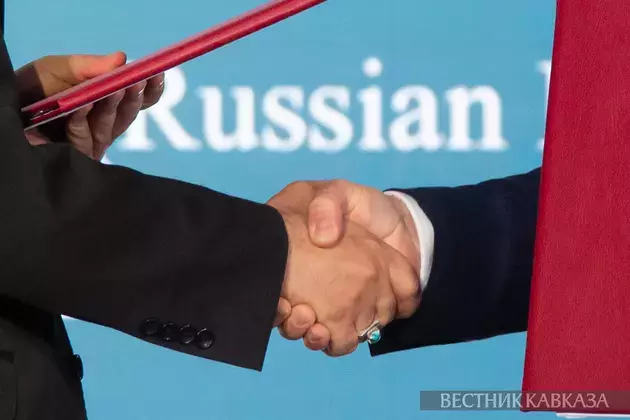A memorandum was signed between Azerbaijan and Russia on the creation of a "mirror" carbon test site in the Kura-Araz Lowland during the second day of COP29.
Several expert sessions took place, including one led by Russian Minister of Science and Higher Education Valery Falkov, who participated in discussions on the creation of "mirror" carbon testing sites. These testing sites aim to develop unified international protocols for monitoring and verifying climate data.
"We believe that for policymakers to make well-informed decisions, a robust scientific foundation is critical. In this context, carbon testing grounds are of paramount importance. We are analyzing methodologies used in different countries, adopting shared approaches," Valery Falkov said.
Head of the Laboratory at the Institute of Oceanology of the Russian Academy of Sciences Sergei Gulev added that international cooperation on carbon testing was a key topic during the meeting.
He noted that by advancing the implementation of Article 6 of the Paris Agreement, they can begin removing carbon emissions from the atmosphere. Gulev stressed that Russia looks forward to further strengthening our cooperation with Azerbaijan.
"I would also like to highlight that soon, a marine carbon test site will be established in the Caspian region, specifically in Dagestan. The Caspian is particularly interesting in this context, as the sea level is receding, uncovering vast areas of land, and no research has yet been conducted in these newly exposed zones," Sergei Gulev said.
The COP29 started in Baku on November 11. The main expectation from COP29 is to agree on a fair and ambitious New Collective Quantitative Goal (NCQG) on climate finance. The COP29 chairmanship has launched 14 initiatives that include linkages between climate action and the Sustainable Development Goals, including green energy corridors, green energy storage, harmony for climate resilience, clean hydrogen, methane reduction in organic waste, action on green digital technologies, and other topics.






